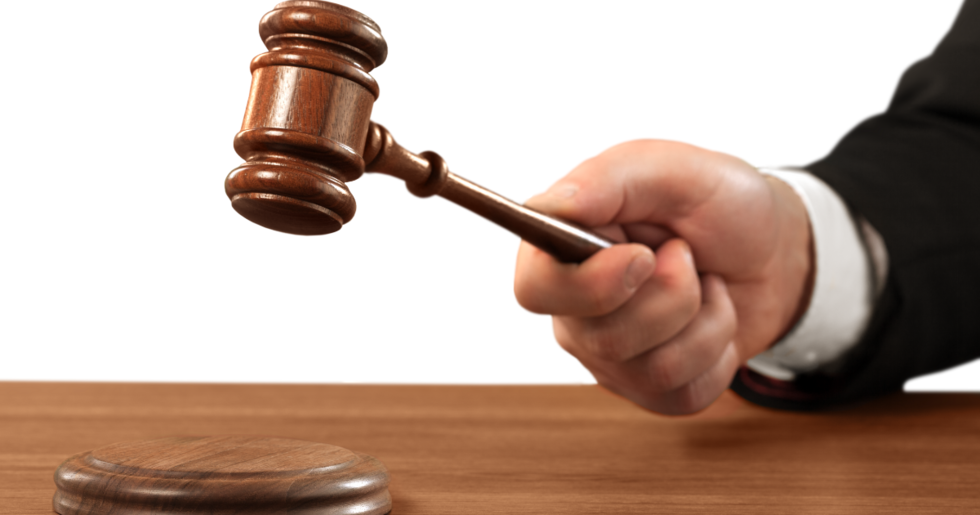Getting charged with a DUI does not mean you are guilty.

If you are facing DUI charges, there are chances that your DUI case can be dismissed. Consult with an experienced attorney about your unique case to see what opportunities you have to get the case dismissed or reduce your punishments if convicted. Here are the most common ways a DUI case can be dismissed.
Errors In Blood Or Breathalyzer Tests
A great example of why you should hire an experienced lawyer for your DUI case is because they will be able to examine blood or breathalyzer tests that were conducted. Experienced DUI attorneys know what to look for and can determine whether proper procedures were followed.
One of the reasons DUI cases can be dismissed or your case can become much more defendable is when the breathalyzer was not calibrated properly, or improper procedures were followed during the test.
Breathalyzers must be calibrated and checked for accuracy regularly. If not, they could be determined inadmissible in court. The most well-known case of this happening was related to the Draeger 9510 Alcotest, in which 27,000 notices were sent out by the Massachusetts Trial Court because in part of improperly calibrated tests. The actions of the Office of Alcohol Testing continue to result in convictions being overturned.
In addition to improperly maintained breathalyzers, police officers administering the test much be certified to do so. The results of a test administered by an uncertified officer can suppressed in court and not admissible at trial.
Certain health conditions can also impact breathalyzer and blood test results, leading to a false positive. The most common health conditions affected by these tests are gastroesophageal reflux disease (GERD) and diabetes.
Illegal Search
Through the Fourth Amendment, a police officer must obtain a search warrant or an exception to the warrant requirement must be found before searching a person's property. This also applies during a traffic stop, where it is illegal for an officer to search your car or even cell phone without a warrant or an exception to the warrant requirement.
In DUI/OUI cases in Massachusetts, a case can be dismissed or severely weakened if a police officer searches your vehicle, even if they do manage to find incriminating evidence against you without a warrant or limited exceptions to the warrant requirement.
If your vehicle is searched depending on the circumstance, the evidence could be surprised and not admissible against you at trial.
Unlawful Traffic Stop
An officer must have reasonable suspicion before pulling you over. This means that an officer must have more than just speculation. They will have to provide what facts or circumstance led to them pulling someone over. For example, if the person was speeding or swerving on the road, they could pull a driver over and further interaction could lead an officer to have suspicion that the operator was driving under the influence.
Unlawful traffic stops can result in an entire case being thrown out, regardless of incriminating evidence found during the traffic stop. Some examples of unlawful traffic stops include:
- No reasonable suspicion
- Race, gender, or other discrimination
- If they pulled someone over just based on a hunch
- Anonymous tips
Any of these reasons and more are unconstitutional and a violation of your rights.
Consult with your attorney if you suspect that you were unlawfully pulled over, which resulted in your DUI charge.
Roadblocks/Sobriety Checkpoints
DUI/OUI cases can be dismissed if sobriety checkpoints are conducted illegally or in an unconstitutional manner. Roadblocks and sobriety checkpoints can only stop vehicles based on a previously devised plan.
Similar to unlawful traffic stops, roadblocks/sobriety checkpoints must be conducted through neutral guidelines planned ahead of time. In addition to this, the public must be given advanced notice for sobriety checkpoints.
Failure to inform the public of a sobriety checkpoint can result in any case from that checkpoint being dismissed.
Checkpoint sites are selected based on areas where previous accidents and unsafe driving incidents occurred, or where drunk drivers have previously been arrested. These areas are considered “problem areas” and the sobriety checkpoints serve to protect the safety of drivers on the road in those areas.
What happens during the preliminary hearing?
During preliminary hearings, the district court judge can review whether there is a strong enough case to proceed based on the initial evidence presented in the police report. It is important to note that this hearing does not determine guilt or innocence, but rather focuses on the legality and justification of the arrest and DUI charges.
The judge may examine whether the police officer had a valid reason to suspect you of driving under the influence (DUI). This could involve looking for indications of a traffic violation or assessing whether the officer's suspicion was more than just a hunch. Concrete evidence must be provided to justify the traffic stop.
Next, the judge evaluates whether there is "probable cause" for the arrest. This means there must have been legitimate reasons to suspect that you were drinking and driving. The judge considers whether the evidence supports the officer's belief that you were operating a vehicle under the influence. Again, this does not mean you are guilty but rather there was sufficient evidence to justify the arrest.
Additionally, the judge examines whether you were properly informed of your rights at the time of the arrest. This includes being warned about your "implied consent" under the law to undergo sobriety, blood, breath, or urine tests. It is also crucial that you were made aware of your Miranda rights, which grant you the right to consult with an attorney.
If any of these elements are found to be deficient, the judge may choose to dismiss the case or impose or other sanctions This means that if there is insufficient evidence to establish a valid reason for the arrest or if proper procedures were not followed, the judge can decide that the case should not proceed to trial.
It is essential to keep in mind that the outcome of the preliminary hearing does not determine your ultimate guilt or innocence, but rather serves as an evaluation of the evidence presented and the legality of the arrest and charges.
Why should an attorney be consulted immediately after arrest?
It is critical to consult with an attorney immediately after your arrest for several reasons. First, it allows a legal expert to go over the details of your case as soon as possible. Prompt evaluation is crucial to identify any potential grounds for having the charges dismissed. Additionally, time is of the essence in building a strong defense, gathering evidence, and ensuring that your rights are protected throughout the legal process. By consulting with an attorney right away, you maximize your chances of achieving a favorable outcome.
What can happen if critical evidence gets thrown out or there is no reasonable justification for the traffic stop?
An experienced OU/DUI Attorney can attempt to throw out critical evidence. For instance, if we can demonstrate that there was no reasonable justification for the traffic stop, the prosecution may find themselves in a challenging position. District attorneys who realize they have a weak case may choose to drop the charges and have the case dismissed, as they know they are unlikely to win without crucial evidence.
What areas will the attorney be looking for to potentially disqualify evidence?
We will thoroughly examine every part of the case from the traffic stop, sobriety tests, chemical tests of your breath or blood, and other relevant procedures to identify any instances where the police may have failed to follow proper procedures. Any such failures could potentially disqualify the evidence related to these aspects of your case.


